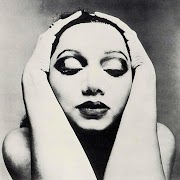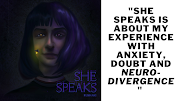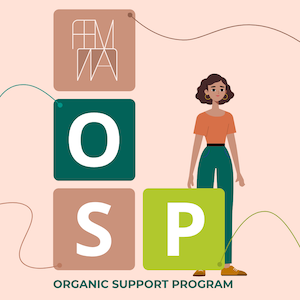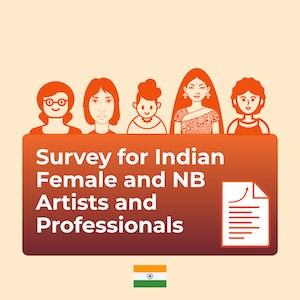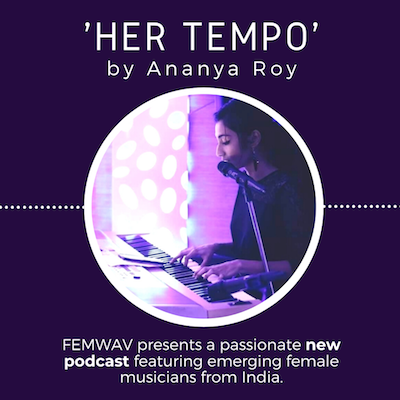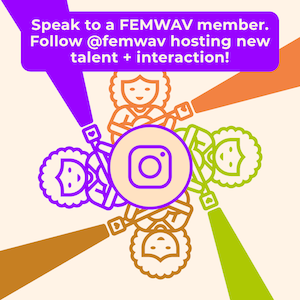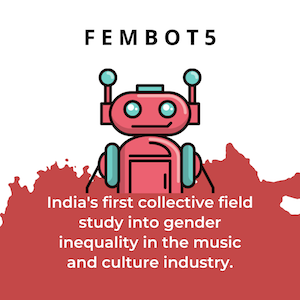Part two, we speak with Desiree Saldanha, Meher Sachdeva and Ridhi Diwan - a young vibrant bunch, working in various sectors of the music and entertainment industry - speaking about their career formation, the initial challenges, key-projects and reorganising during the 2020 pandemic.
Desiree : I've had stints working at companies like RedBull, Canvas Laugh Club, BAJAAO and started volunteering at music festivals right since I was 18. That's what really got me interested in the work that goes on behind the scenes with music. Then in my was a year post graduation where I pursued my own artistic dreams as the vocalist for a band and duo project and also experimented with my solo project that I've never officially released. I've always been extremely passionate about music and I believe all these experiences built up my knowledge in many ways setting me up to become the executive I am today.
Meher : I started dabbling in the management space through internships with some of the most exciting organisations, while I was doing my undergraduate degree (in Politics, Philosophy and Economics) at Ashoka University. I had the opportunity to intern with the incredible people at The Gig Week, as well as at Big Bad Wolf Entertainment. Once I graduated, I moved to Mumbai for dance school and then landed my full time job in the management sphere at OML Entertainment. Working mostly with stand-up comedians, I stayed with the company for almost a year and a half, and then transitioned into the music management business by joining the firm I’m currently with, UnderTheRadar.
Ridhi : I graduated in Sociology from Sri Venkateswara College, Delhi University, and to be honest, getting into the music business was never a part of the plan till the graduation year. I come from a family of first-generation entrepreneurs, so hustling is in the DNA by default. I tried slipping into various roles, whether it was an internship in the HR Department at Hindustan Times or Content writing at PINESO. Irrespective, these hustles helped me understand myself better and gain clarity during my formative years in college…However, the experience which shaped my personality was the one I had with the festival organising committee of my college. I had joined as a member in the freshman year and was elected as the Vice President in the final year. As the VP, I had to not only build a festival from scratch but had to firefight issues and team politics on a daily basis to make sure that we stayed intact as a group.
What were the principle challenges you faced as a female entrant into a clearly male dominated realm?
Desiree : For me, one of the major issues was having to go against societal norms regarding the kind of roles women are supposed to take on. My decision to work in this industry versus a more traditionally accepted one was regularly questioned by family and friends in the beginning. The late nights often spent at pubs/clubs and travel requirements was also a serious safety concern. To add on, there is the issue of not being taken as seriously and not being considered as capable as your male counterparts until proven otherwise. There are levels to the obstacles marginalised genders face when it comes to entering a male dominated space in any industry and this one is no exception.
Meher : I think one of the biggest challenges I faced was that of the trade-off between voicing concerns about safety and being seen as incapable of managing a situation or handling myself. Luckily for me, the companies I have worked with have been very particular about sending security for female managers, because sometimes at shows or on tours, you can potentially encounter people who will try and misbehave or are under the influence and extremely rude or aggressive. However, despite that, it can become a situation where if you encounter these situations and handling them becomes difficult, it may seem like it’s easier to just send a male counterpart for future purposes or to be limited by always having a male colleague accompany you.
Ridhi : The journey with Spectal has been one for the books since each day was a new learning experience. I was the only female member not only in the organization but also in the extended team, which included associates, promoters, touring engineers, support staff.... My day to day interactions involved production vendors, promoters, travel operators, and almost all of them were male, which was the bittersweet surprise. What I realized was in situations like these, there is always a glass ceiling that forces women to stay in confined boxes and be unopinionated. The biggest stereotype that I had to face was that deep down everybody had their reservation as to how a 20 something-year-old female who is fresh out of college would be able to handle the pressure of shows and deal with event promoters from deep pockets across the nation. All this was hindering and obstacled, but I stuck to doing my job and being sincere at it, which kept me going… Even though I always kept my best foot forward at all times, I had realized that I would be usually kept out of the loop in a crisis because the associates and the promoters never believed that I would be able to understand the dynamics of the industry.
What are your current projects and works about? Your view on the disruption of the live entertainment industry because of the Covid pandemic?
Desiree : I'm an Artist Manager at Third Culture Entertainment primarily managing Raja Kumari, MadStarBase and Kone Kone. Being part of a smaller team, I'm also immersed in every other project the company takes on like producing festivals, tours and events. Most of my time however, is dedicated towards building Kumari's brand as a whole which before the onset of COVID-19, meant regularly touring the country, overlooking brand deals, working on releases, appearances etc. Managing a powerful female hip hop artist like Kumari, along with a largely female team has been incredibly rewarding. Since March, we've reorganized our efforts shifting focus onto content and brand associations and are working towards stabilizing as much as possible given the circumstances. The live industry is evidently at a standstill with artists having large social media followings at an obvious advantage.
Meher : The COVID pandemic, in my opinion, has been an interesting challenge. While the impact on the industry has been huge, and all of us are waiting eagerly for live events to resume, it has forced every artist and manager to not only get creative with new formats for shows, but also to find new ways to engage with fans and audiences. For instance, what Raghav Meattle has been doing with his community streams on IG live is a great example of finding ways to boost the arts industry and increase engagement not just for himself, but for new and upcoming voices in the arts sphere.
Currently, we just got off building retroFuture which was a 360’ virtual reality live-stream that featured Ritviz, Anish Sood and Nucleya and took place in July this year.
Ridhi : Even though technically, I started as an artist manager for The Local Train back in 2018, but my role was not limited to just that from day one. I have coordinated close to 50 shows across Comedy, Bollywood, and even a ten-city tour with Guthrie Govan, a guitar virtuoso. Going into my second year, I began to expand my horizon to not only lead the bookings ‘division of Spectal but also started working on long term projects which I believe can shape into newer avenues for the company. Since there aren’t any live events happening due to COVID-19, I am devoting my time to Social Media, Merchandise of The Local Train, Website, and also digital brand pitches for student-specific brands.
The current pandemic situation has an unparalleled impact on the event industry since we are the exact opposite of the central idea - Social Distancing. The event industry was the first to shut shop and probably will be the last to open. The situation of the crew and support staff concerned us and pushed us to kick start -Together for tomorrow, an initiative to provide financial respite to the freelancers and daily wagers of our performance industry. These are the most affected due to no fixed income and also limited to no savings owing to the seasonal nature of the work. I have been leading the social media, data collection, and artist outreach of the initiative, and we have managed to raise over 5L within six weeks of the fundraising. It is a great feeling to see what you are entrusted with, finally taking shape.

What steps have you undertaken to create new opportunities for more female artists and professionals in the music industry of India?
Desiree : There's a mix of steps I think people in the industry can take on a regular basis to tackle this issue like calling out casual sexism and misogyny, mentoring young females, affirmative action in the workplace etc that will help eradicate the barriers to entry for women. Some of the practical steps we take at Third Culture include consciously balancing out the gender ratio while programming lineups at music festivals or booking artists for gigs. We've also hosted DJ workshops for women in our office space and last year collaborated with Coven code, a collective aiming to ensure an inclusive and safe music festival experience at the maiden edition of our festival. On a personal level, I intend on tackling this issue in a much larger way moving forward and it's one that I strongly support.
Meher : From what I’ve gathered in my experience so far, two of the biggest factors that will enable more female artists and professionals to enter the music industry are an active community that provides the support that they need, and access to more information and resources. My focus in this domain has been to ensure that any artist or manager, whom I encounter, feels supported and has someone to talk to. It is also to find ways to answer questions that come my way with the most accurate picture I can paint of the industry, pros and cons, for people to make decisions in a well-informed manner.
Ridhi : I have been fortunate enough to work alongside an all-female team here at Spectal for the past one year. Even though we never consciously pushed to build an all-female team, the good part is that we have never shied away from hiring the deserving female candidates even for brand servicing positions, which are otherwise considered tailor-made for males...I am quite proud of the fact that we as an organisation are playing our part to break the stereotypes around females in this realm. Though the satiety is not wholly unlocked as I have just been able to pave the way for other young women like me but soon enough, when I see them where they deserve to be, I guess the feeling would be worth it.
Desiree : I intend on continuing along my career in music and in the future, starting a music management agency of my own that focuses mainly on female and LGBTQ+ talent from the country. I believe we have tremendous talent here that is underrepresented without any investment or mentorship opportunities. I'd like to build up the infrastructure around marginalised genders who are rarely given the opportunity to tell their stories let alone through music. Further to this, I also intend on working with artists outside of the country so as to experience the industry in a more holistic way.
Meher : I’m working on a project to disseminate information in the arts sphere. Simultaneously, I’m working on my own creative pursuits in the creative writing and dance spheres. At some point, I hope to become more involved with art policy development.
Ridhi : I have been meaning to explore parallel industries, and I will be taking a break from work for a year to pursue a master’s in luxury brand management in 2021. Adding to this, my involvement with the Dream Girls’ Foundation made me realise the overlooking of underprivileged as a society and I feel that working with TogetherForTomorrow has rekindled this urge. Hopefully, I will be able to sustain through a social initiative that has been on the cards for a while.
Meher : I’m working on a project to disseminate information in the arts sphere. Simultaneously, I’m working on my own creative pursuits in the creative writing and dance spheres. At some point, I hope to become more involved with art policy development.
Ridhi : I have been meaning to explore parallel industries, and I will be taking a break from work for a year to pursue a master’s in luxury brand management in 2021. Adding to this, my involvement with the Dream Girls’ Foundation made me realise the overlooking of underprivileged as a society and I feel that working with TogetherForTomorrow has rekindled this urge. Hopefully, I will be able to sustain through a social initiative that has been on the cards for a while.
Interview by Roopkiran Sangha. Artwork by FEMWAV






